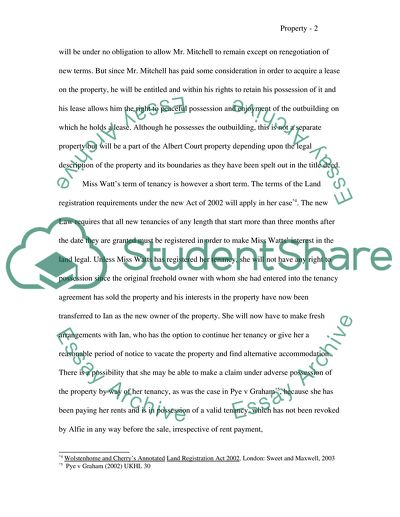Cite this document
(Ians Property Law Situation Case Study Example | Topics and Well Written Essays - 2000 words, n.d.)
Ians Property Law Situation Case Study Example | Topics and Well Written Essays - 2000 words. Retrieved from https://studentshare.org/law/1535787-property-law-1-assignment
Ians Property Law Situation Case Study Example | Topics and Well Written Essays - 2000 words. Retrieved from https://studentshare.org/law/1535787-property-law-1-assignment
(Ians Property Law Situation Case Study Example | Topics and Well Written Essays - 2000 Words)
Ians Property Law Situation Case Study Example | Topics and Well Written Essays - 2000 Words. https://studentshare.org/law/1535787-property-law-1-assignment.
Ians Property Law Situation Case Study Example | Topics and Well Written Essays - 2000 Words. https://studentshare.org/law/1535787-property-law-1-assignment.
“Ians Property Law Situation Case Study Example | Topics and Well Written Essays - 2000 Words”. https://studentshare.org/law/1535787-property-law-1-assignment.


